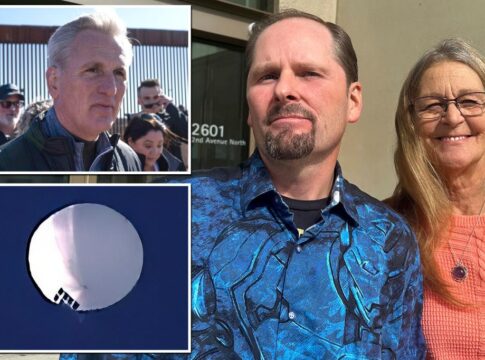An icon in the shape of an angle pointing down.
EXTREME-PHOTOGRAPHER/Getty Images
- A high-tech treatment called hyperbaric oxygen therapy may boost longevity and performance.
- A longevity doctor said you should first focus on the basics of living longer.
- The best longevity habits, from exercising daily to building community, don’t cost a thing.
You may want to hold off on paying for the latest trendy anti-aging treatment — some of the best ways to extend your life and health are free, according to a longevity doctor.
Dr. Shai Efrati has spent more than a decade studying hyperbaric oxygen therapy, which involves flooding the body with pure oxygen in a compression chamber, alternating with periods of normal oxygen levels.
The body interprets this as a crisis, Efrati said. This prompts a rush of regenerative processes that may add time to our biological clocks by getting rid of senescent cells, so-called “zombie” cells that don’t work right but also don’t die, building up in the body and causing problems.
His studies suggest that clearing out those cells can have real-world benefits, such as better mental acuity and physical performance in people who receive the treatment.
It isn’t cheap. A session can cost a few hundred to $1,000, while at-home versions of hyperbaric chambers will set you back $20,000.
But he doesn’t recommend trying expensive treatments until you’ve dialed in the basics. Here’s what Efrati said everyone should focus on before spending money on longevity treatments, and what’s worked best for him.
A sense of purpose can keep you youthful
One of the best ways to live longer and maintain your quality of life is to give yourself a reason to get out of bed, according to Efrati.
Whether it’s in your work or your community, become a part of something bigger than yourself, and make yourself essential to the people around you. Knowing other people are counting on you can drive you to keep showing up, he said.
Research shows that some of the world’s longest-living communities, known as Blue Zones, heavily emphasize purposeful living and a strong sense of community.
For Efrati, studying longevity is both a personal and professional project, motivating him to pursue the science of living longer and better.
“I always think about the future. I have plans for the future,” he said.
Courtesy of Dr. Shai Efrati
Give your body the right fuel for peak performance
The boring truth is that eating your vegetables and not overdoing it with processed food can help you live longer.
“If you have a car and you will put fuel that is dirty, the engine will be destroyed quite quickly. So whatever fuel we are taking into our mouth, we should think about the consequences,” Efrati said.
He practices intermittent fasting, which studies suggest has promising benefits for longevity, and focuses on nutrient-dense food.
“I do my best not to put junk in my body,” he said.
Exercise regularly
The other pillar of longevity you can follow without spending a cent is getting enough movement in your daily routine.
Physical activity, even just a quick walk, has a cascade of health-boosting effects, reducing your risk of disease, improving mood and energy, and strengthening your heart and lungs.
“Challenge your physiology, meaning doing exercise,” Efrati said. “By doing that we can tell the body, listen, we need you to be ready for the next challenge that I’m going to get.”
Focus on your specific priorities
Efrati said the first thing he does with every patient is ask them about their goals. Whether you want to set world records or keep up with your grandkids, longevity isn’t just about staying alive but maintaining a high quality of life.
“So as long as we enjoy the journey and to enjoy the journey is our physical functionality, our cognitive function,” Efrati said. “And if we are losing that, I don’t think that many of us would like to stay around when everything is shut down and you’re sitting in the dark.”


